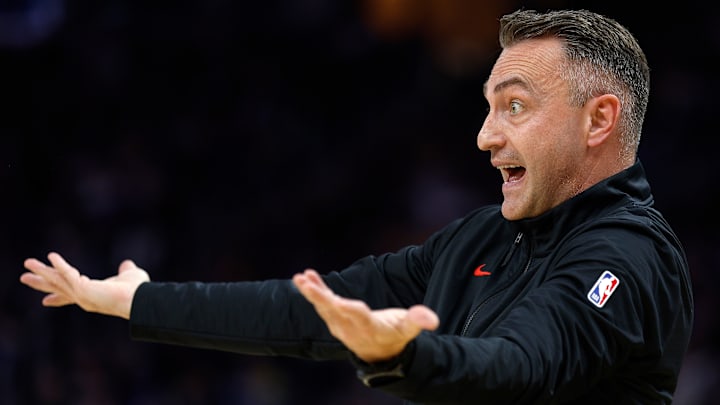With the recent release of the 2025-26 NBA regular season schedule, Raptors fans were likely focused on what Toronto's lineup of adversaries would look like early on, such as the new-look Atlanta Hawks, or key storylines, such as Brandon Ingram’s return to New Orleans in March as the Raptors face the Pelicans.
However, looking ahead to the Raptors' upcoming season, you'll notice that Toronto only has two games scheduled for national television broadcast in the United States: against the Cleveland Cavaliers on November 24 on Peacock, and versus the Chicago Bulls on February 5 on Prime.
Limited national TV exposure for Raptors hints at NBA's confidence level
For contrast, let's examine two other Eastern Conference teams on a similar plane to the Toronto Raptors: the Atlanta Hawks and Orlando Magic. The Hawks enjoy the benefit of 13 nationally televised games, while the Magic have 14.
I doubt any conscientious Raptors fan would confidently claim that the NBA is largely on their side. At the same time, I wouldn’t say there’s some grand conspiracy against the Raptors just because they’re not a U.S.-based franchise (though I do think that doesn’t help). Still, it’s pretty easy for the NBA to prioritize other teams over Toronto for a variety of reasons.
Some immediate thoughts that come to mind are the Raptors' limited crossover appeal beyond the border and the absence of household names for a casual audience. Brandon Ingram, Scottie Barnes, and their cast mates are undeniably talented, but I don’t know many people eager to tune in just to watch them play — unless you're a die-hard Raptors fan.
And let's be real for a second. The Raptors were just a lottery team last season.
While folks like myself and other optimistic fans in Raptors Nation believe this slightly revamped squad can come together and deliver a better record or postseason run, the reality is that many mainstream pundits and analysts aren’t giving the 2025-26 Raptors much praise. If they’re getting any coverage at all, it’s mainly because people are confused about the severity of their contracts and largely clunky or unproven talent mix.
It really sucks when you're so passionate about a team and want them to establish a stronger, more recognizable identity for the mainstream American audience. But that’s just how it goes when you're a team based elsewhere. Raptors Nation is strong and reaches far beyond just Toronto — if not across all of Canada.
Still, the NBA always prioritizes teams they believe can draw the most attention and viewership. Unfortunately, this year is another reminder that the league doesn’t have a lot of faith in the Raptors proving them wrong.
